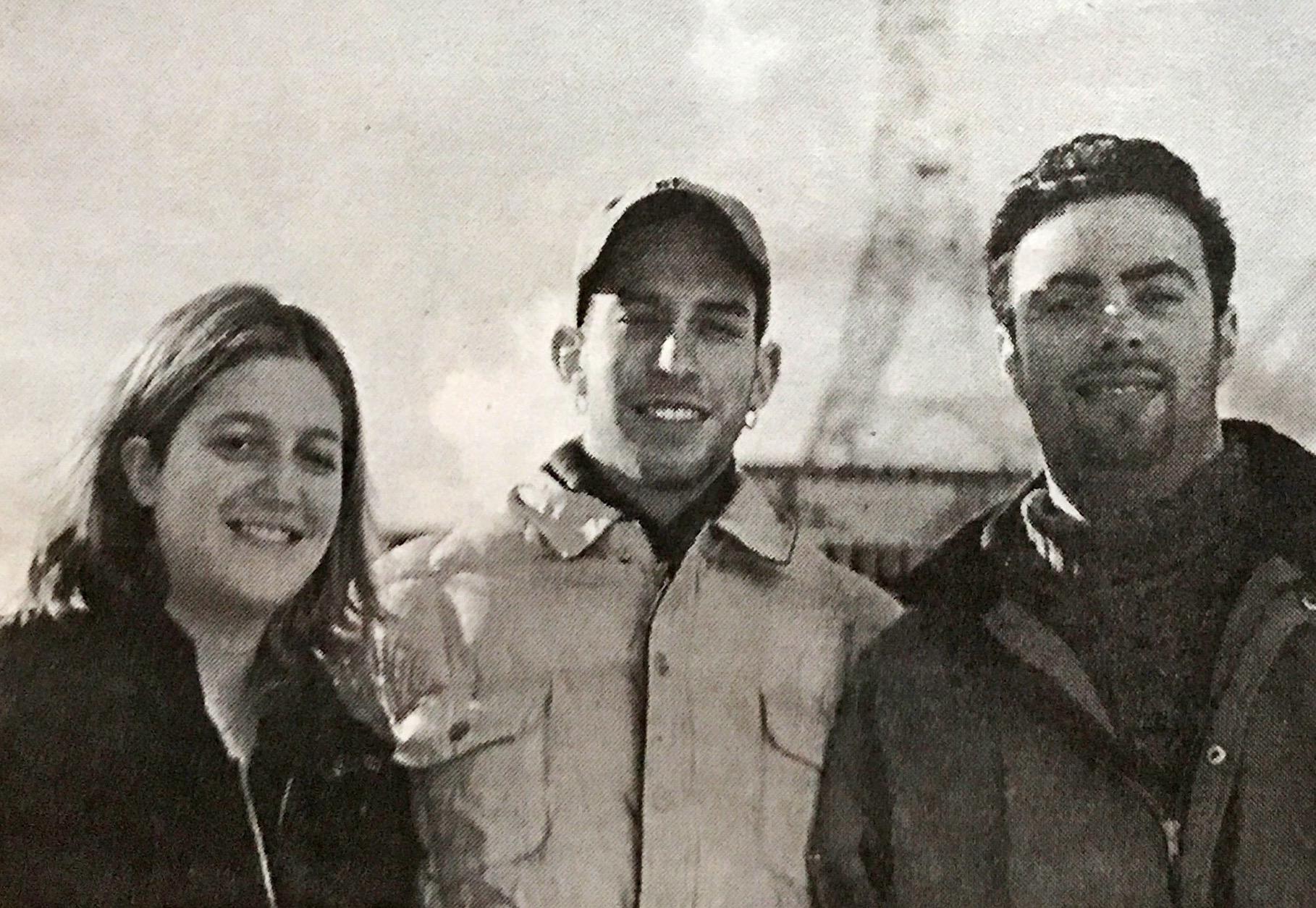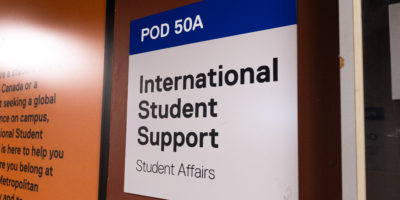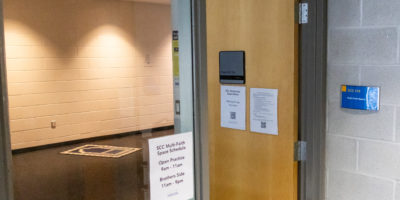By Paul Chodirker
When Darryl Margau checked his answering machine on Jan. 18 he got a surprise. “It was a wicked message,” the third-year business student said. “I thought I had won the lottery.”
Actually, he was chosen along with four other Ryerson students to spend reading week in Israel—for free.
Eitan Weisz, a third-year electrical engineering student, was just happy to get the call. “I’ve never been to Israel,” he said. “I was planning on going a couple years ago, but I never go around to it.”
The free trip for 1,000 Canadian participants and 3,000 from the United States is part of a project known as Birthright Israel.
Michael Steinhardt and Charles Bronfman founding chairmen of Birthright Israel, initiated tech $300-million project in November 1998. It is being funded by individual philanthropists, Jewish communities worldwide and the government of Israel.
Twenty-five tours will be leaving from Canada during university and college reading weeks. The tours will be organized by the Canada Israel Experience Centre in partnership with Jewish Campus Services (JCS), Hillel, the United Jewish Appeal and combined Jewish Appeal Federations from all over Canada.
The philanthropists say the gift is being given to young Jews in the hopes a trip to Israel will give them a stronger sense of their cultural identity as well as create a bond with their homeland and their individual communities.
Participants were told the only money they would need is for souvenirs, travel insurance and extra food. They will stay in both hotels and kibbuzim (a communal village).
Alissa Cohen, a second-year retail management student, is one of the three Ryerson students going on the trip to agreed to be interviewed by The Eyeopener. She said she heard about the trip from her mom this summer. “At first, I thought there was some kind of catch,” she said. “I know people who didn’t go for it because they thought it was some sort of scam.”
The only apparent “catch” is participants have to be between 18 and 26 years old, Jewish, and never been part of an educational Israel experience.
But, with all free things, controversy usually follows.
All applicants had to deposit $300 deposit with their forms. The Canada Israel Experience Centre said the money was necessary to make sure people wouldn’t cancel at the last minute. Although those who were not selected will get their money back, and those who were will get the deposit back when they return from Israel, there was still concern in the young Jewish community that many students couldn’t afford to produce the money when it was needed to be eligible for the trip.
Keren Troyna, president of the Jewish Students Association (JSA) at Ryerson, said students with cashflow problems could have approached the JSA and received aid. No one did, she said.
Another problem concerned the eligibility of applicants.
“I think it should have been for people who have never been at all,” said Cohen. “A lot of people I’ve met who are going have already been there.”
But Elizabeth Sokolsky, the national executive director of the Canada Israel Experience Centre, said the purpose of the trip is not just to send people to Israel.
“It is 10 days of high-quality educational experience,” she said.
Deciding who gets to go on the trip was another problem. When applications first started arriving at the Canada Israel Experience office, it was obvious there would be more applicants than travellers.
“We got bombarded,” Sokolsky said. In fact, there were 2,700 applicants for the 1,000 spots in Canada alone.
A lottery system was put in place, allocating a certain number of spots for each Canadian community. Names were entered into a computer database and randomly chosen. Approximately 325 names were drawn from the Toronto area, which included students from the University of Toronto and York University. The University of Western Ontario, which includes the city of London, was given 120 positions.
Ryerson was only allotted five.
“I complained about how Ryerson only got five spots,” Troyna said.
But Sokolsky said the reason Ryerson was given such a small number of spots is because of the school’s reading week. In fact, Ryerson is the only school to have been given spots directly affiliated with its students. The names of students from York and U of T were placed in a grouping of those applying from all of Toronto, including residents who do not attend university. Problems arose because Ryerson’s reading week is different from that of York and U of T, so Ryerson students had to be separated from the Toronto lottery and given five spots.
“Had Ryerson [had] the same [reading week], the numbers would have changed,” Sokolsky said.
Still, Sokolsky said the names of Ryerson students who were not chosen for the Feb. 17 trip were included in the group of names from the Toronto area. These students would then be given the opportunity to go on the trip the week before—while school is still in session. Therefore, more than five students from Ryerson could be going to Israel for free.
The Canada Israel Experience Centre does not know how many students from Ryerson were chosen for the Feb. 14 trip, but Ryerson’s JSA believes as many as fifteen names were drawn.
The five Ryerson students will join participants from the Ottawa area, two Canadian staff members and one Israeli educational leader to spend the 10 days in Israel. There are 25 groups travelling from Canada. The group from Ryerson will leave on Feb. 17 and will return Feb. 28.
Because the philanthropists who contributed to the project wanted the trip to be a learning experience, each group will participate in several discussions and attend lectures by political dignitaries and guest speakers.
One of the speakers is Shlomo Perel, a Holocaust survivor whose experiences contributed to the movie Europa Europa.
“I think the trip sounds really good,” Weisz said. “They’re really pushing more Jewish culture in everybody’s life.”
“I think that knowing that the trip is free there has to be a certain amount of discussions of issues,” Margau said. “I don’t think I’ll come back a hardcore orthodox Jew, but some people do.”
When the students from Ryerson arrive in Israel, they will immediately go to the desert to start their journey. The next day they will be in Jerusalem where everybody involved with Birthright Israel will be on hand for a massive party.
Other events include a tour of Masada, a walk through the old and new cities of Jerusalem, and a day in the modern city of Tel Aviv.
There will also be a visit to a winery in the Golan Heights, where in the past year there have been territorial disputes between Israel and Syria.
“We had a group removed from a location because of a bomb scare,” said Zoe Klein, the program outreach supervisor for the Canada Israel Experience Centre. “We take no chances.”
Klein also said each group will be accompanied by an armed escort during outdoor activities. Each group leader will have a pager to keep in touch with Israeli officials in case some areas are no longer suitable for visits.
But this doesn’t seem to bother the travellers.
“I don’t have any fear,” Margau said. “If I went on this trip worried about bombs going off in the market, it would be a bad way to look at it.”













Leave a Reply